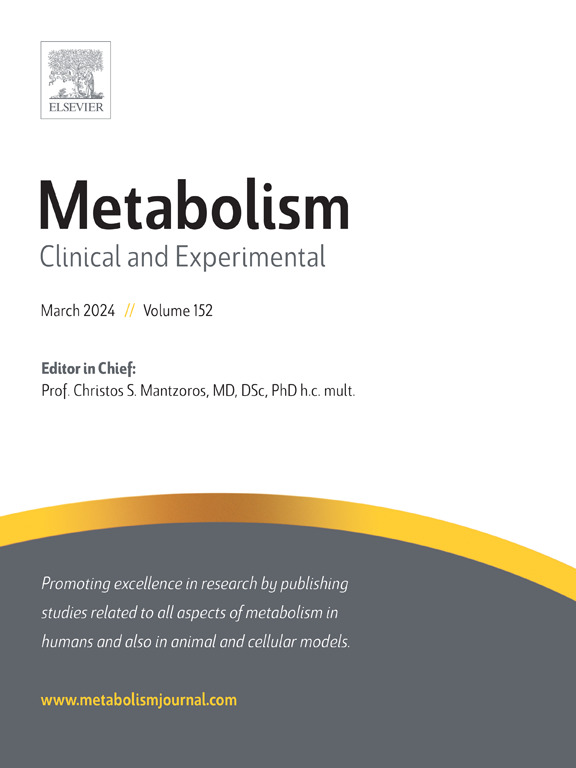NIPSNAP1 and NIPSNAP2 facilitate healthy aging independent of mitophagy
IF 11.9
1区 医学
Q1 ENDOCRINOLOGY & METABOLISM
引用次数: 0
Abstract
Mitochondrial dysfunction is a hallmark of aging and has been implicated in aging-related diseases. NIPSNAP1 and NIPSNAP2 are functionally redundant homologs involved in mitochondrial quality control, yet their roles in healthy aging and longevity remain unclear. Here, we generated a Nipsnap1/2 double knockout (DKO) mouse line and examined its impacts on mitochondrial physiology and natural aging. We demonstrated that the loss of Nipsnap1/2 impaired mitochondrial function and enhanced glycolysis activity, but it did not affect mitophagy despite the significant accumulation of Parkin. Compared with wild-type mice, DKO mice exhibited reduced body weight, deteriorated muscle strength, and pronounced fragility at 24 months of age. Moreover, Nipsnap1/2 depletion exacerbates aging-associated fibrosis and inflammation in the heart, liver and kidney. RNA-seq revealed a pro-aging transcriptome reprogramming toward energy exhaustion in DKO mice, eventually leading to cachexia-like adverse metabolic remodeling. Our findings demonstrate an anti-aging role of NIPSNAP1/2 via the surveillance of mitochondrial health.

NIPSNAP1和NIPSNAP2促进独立于线粒体自噬的健康衰老。
线粒体功能障碍是衰老的标志,并与衰老相关疾病有关。NIPSNAP1和NIPSNAP2是参与线粒体质量控制的功能冗余同源物,但它们在健康衰老和长寿中的作用尚不清楚。在这里,我们产生了Nipsnap1/2双敲除(DKO)小鼠系,并研究了其对线粒体生理和自然衰老的影响。我们证明Nipsnap1/2的缺失损害了线粒体功能并增强了糖酵解活性,但它不影响线粒体自噬,尽管Parkin显著积累。与野生型小鼠相比,DKO小鼠在24 月龄时表现出体重减轻、肌肉力量恶化和明显的脆弱性。此外,Nipsnap1/2缺失加剧了心脏、肝脏和肾脏中与衰老相关的纤维化和炎症。RNA-seq揭示了DKO小鼠的促衰老转录组重编程,最终导致恶病质样的不良代谢重塑。我们的研究结果通过监测线粒体健康证明了NIPSNAP1/2的抗衰老作用。
本文章由计算机程序翻译,如有差异,请以英文原文为准。
求助全文
约1分钟内获得全文
求助全文
来源期刊

Metabolism: clinical and experimental
医学-内分泌学与代谢
CiteScore
18.90
自引率
3.10%
发文量
310
审稿时长
16 days
期刊介绍:
Metabolism upholds research excellence by disseminating high-quality original research, reviews, editorials, and commentaries covering all facets of human metabolism.
Consideration for publication in Metabolism extends to studies in humans, animal, and cellular models, with a particular emphasis on work demonstrating strong translational potential.
The journal addresses a range of topics, including:
- Energy Expenditure and Obesity
- Metabolic Syndrome, Prediabetes, and Diabetes
- Nutrition, Exercise, and the Environment
- Genetics and Genomics, Proteomics, and Metabolomics
- Carbohydrate, Lipid, and Protein Metabolism
- Endocrinology and Hypertension
- Mineral and Bone Metabolism
- Cardiovascular Diseases and Malignancies
- Inflammation in metabolism and immunometabolism
 求助内容:
求助内容: 应助结果提醒方式:
应助结果提醒方式:


